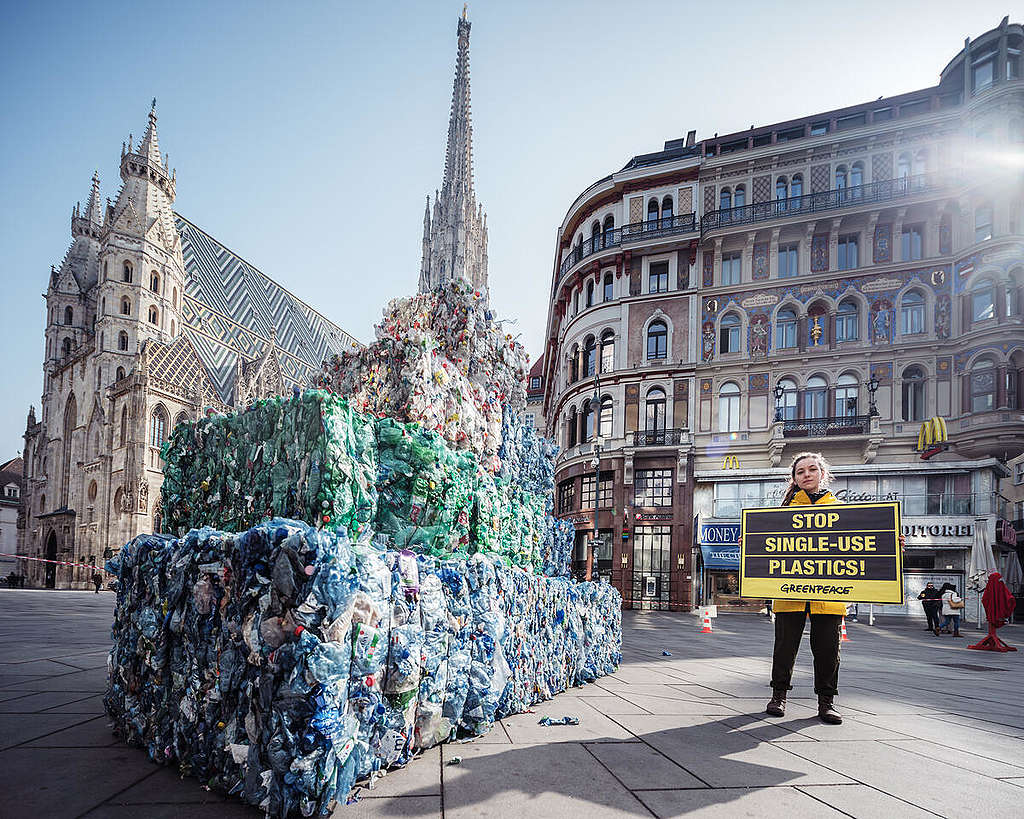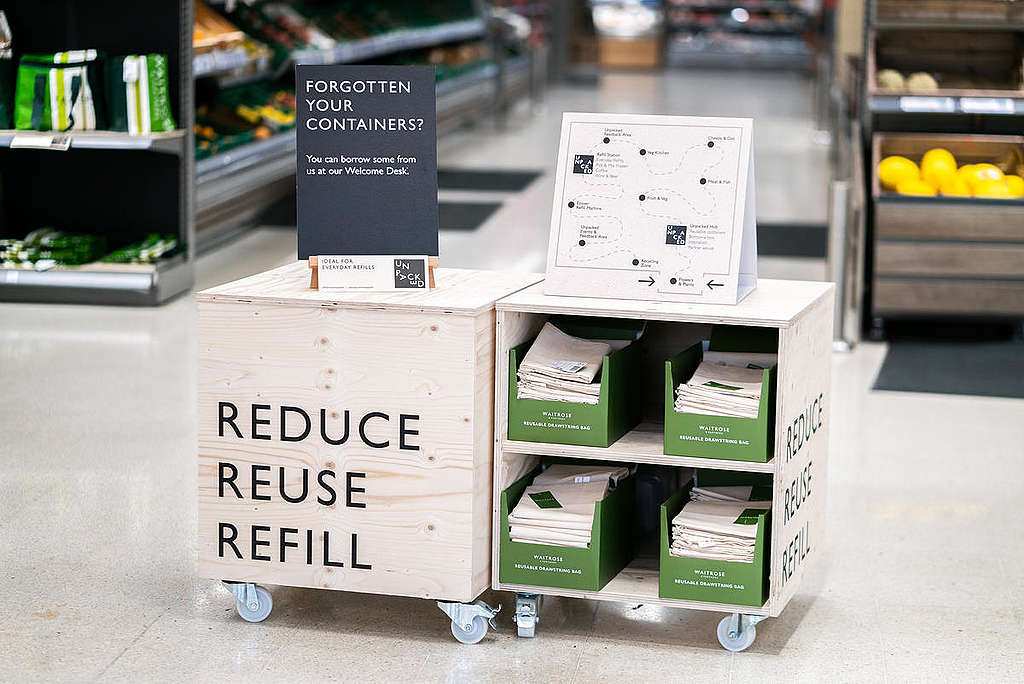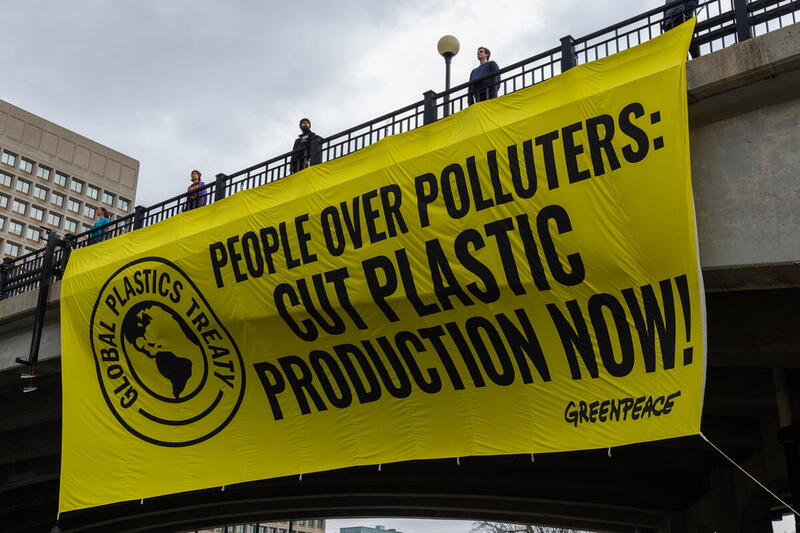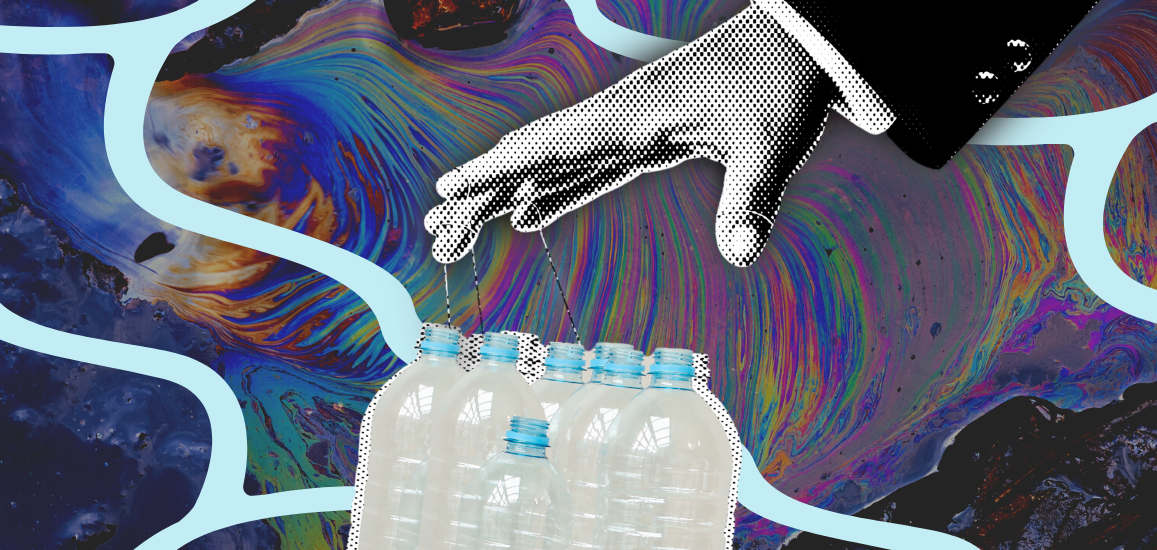It’s World Refill Day — a global campaign to prevent plastic pollution and help people live with less waste. We know we can’t live waste-free or curb pollution without getting at the source — and culprits — of the problem. This year all eyes are on big consumer brands, also known for being the world’s top plastic polluters, and on the Canadian government, for stalling on fully embracing refill and reuse. A growing zero waste movement and expanding reuse-refill sector are trying to lead us to our plastic-free future, but they need help!
You know what doesn’t help? Greenwashing. Big brands are trying to sell the idea of reuse without really doing the work. Earlier this year, The Coca-Cola Company announced its plans to have “at least 25% of all beverages globally across its business sold in refillable/returnable glass or plastic bottles, or in refillable containers through traditional foundation or Coca-Cola Freestyle dispensers.” As a company producing billions of bottles each year that leak into the environment across the planet, this is a drop in the (plastic-filled) ocean. PepsiCo, Nestle, Unilever and Procter and Gamble may talk a lot about reuse on their websites and may be testing reusable packaging and refill models, but we have yet to see substantive commitments to true, widespread change. Change that we need now.

So, this World Refill Day, over 400 organizations signed an open letter to the CEOs of 5 of the biggest fast moving consumer goods companies in the world to urge them to commit to meaningful plastic reduction, drive a systematic shift to reuse-refill models, and be transparent as they chart their new course. We need these companies to be working collaboratively across sectors to create infrastructure that won’t just benefit the few but will help us scale successful reuse and refill systems. We need them to take responsibility for their disproportionate role in the plastic waste and pollution crisis and the devastating impact these top polluters are having on people and the planet. And we need them to do it now.
World Refill Day, originally created by a UK organization called City to Sea, has grown into a global call for governments, corporations and other businesses to join the reuse and refill revolution and spur a transition to a plastic-free future. Like most revolutions, grassroots initiatives are leading and growing the movement, with refilleries, refill stations, and other reuse-refill models popping up across Canada and around the world. But a lack of government support to build reuse and refill system infrastructure and take on the added cost of testing and running these models makes it hard for smaller businesses and initiatives to expand in their communities.
As part of the federal government’s Zero Plastic Waste strategy you would expect that it would, in fact, support those who are trying to offer reuse and refill, zero waste solutions and accelerate the transition and scaling of proven models. That’s not been the case. Federal funding has been focused on recycling initiatives and other end-of-pipe false solutions. The lack of government support for small players combined with big companies working to keep us locked in our disposable habits mean that it can be extremely difficult to keep initiatives going even when there is lots of public support, and it also means that refill and reuse is far from being offered to the masses.
Greenpeace has joined dozens of environmental organizations, reuse service providers and small businesses from across the country to call for increased government support for reuse and refill initiatives. Funding, investment in infrastructure, bold reuse-refill focused policy, incentives, clear communication that reuse and refill systems are the preferred solution, holding large corporations accountable for the full lifecycle of their products, setting national reuse and refill targets, and the removal of other regulatory or policy barriers for adoption and scaling are just a few of the ways that the feds should be supporting the reuse and refill sector.

A swift transition to reuse and refill systems across sectors and our communities is the best way to reduce waste, pollution and unnecessary extraction from our struggling planet. Truly circular systems can help us reduce the “stuff” in our lives and that “stuff” ending up in landfills or being burned. They can create green and just job opportunities, and foster community collaboration and connection. They can offer real hope for a plastic-free future.
World Refill Day is a perfect opportunity to remind the federal government that it must join the reuse and refill revolution and put its support and money in the future. Share this blog on your social media accounts and tag Minister Guilbeault on Twitter, Facebook, and Instagram asking him to support a transition to refill and reuse systems — and a truly zero plastic waste future. And stay tuned for what’s to come in Plastic Free July!


